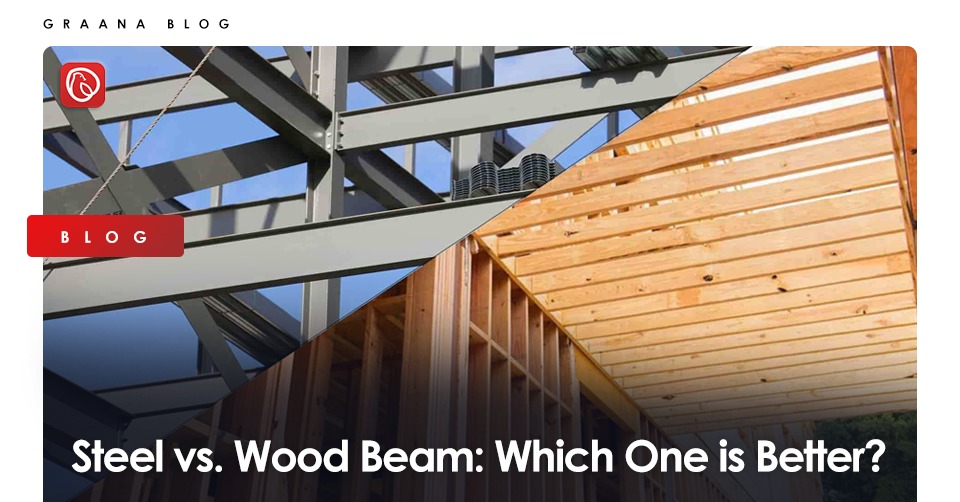Ceiling beams play a significant role in interior design, and exposed beams are a popular feature in today’s interiors, appearing in a variety of forms and decorations. Beams are particularly popular in rustic decors, but they aren’t limited to just that. We see them in modern interiors where parts of several types are combined to create eclectic and unique home décor, and rustic features lend a special charm to the overall decoration concept.
Designers, decorators, and homeowners can choose from a variety of materials and decorative options when using ceiling beams to transform the interior.
Graana.com, Pakistan’s leading real estate portal, compares steel and wood beams so that you can make an informed decision.
Considerations
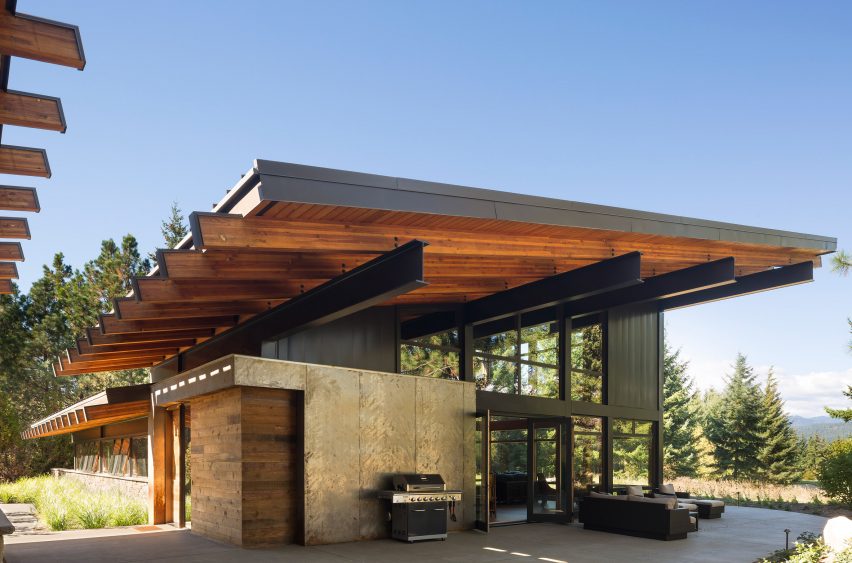
Before moving on to the pros and cons of different types of beams, let us take a look at the factors that can affect your decision.
Design Goal
Your design preference will impact your decision the most. If you are going for a rustic look, you might prefer using exposed wooden beams. On the other hand, if you want to utilise all of the space available, steel beams would be the way to go. Furthermore, if you don’t want to use faux wood, steel is available in a variety of colours that you can use to add to your design. Therefore, align your design with your need of steel or wooden beams.
Construction Schedule
Your construction schedule is another consideration. Wooden beams are usually available in cut pieces and the vendor can size them down even further on the spot, according to your requirements. On the contrary, steel beams need to be ordered beforehand and the schedule needs to be lined up with the construction of the property.
Budget
You would understandably want the best for your house and, hence, would like to install beams carved out of rosewood, maple or cherry. However, you may change your mind when you come to know the prices. It is important that you take into consideration the different types of wood available in the market as well as their costs.
In case wooden beams are putting you out of budget steel beams might be a better option. Hence, budget will impact your decision to use steel or wood beams.
Sustainability
You might think that steel is not sustainable or environmentally friendly, however, when compared to lumber and the delays in its availability, steel is the better option of the two. Furthermore, wood rots over time while steel is practically immune from rust and rot.
Steel will not ignite in a fire. However, in the case of a larger fire, it may distort. If coated or galvanised against rust, steel’s expected lifespan far outlasts that of wood. Insects only regard it as a stumbling block on their route to timber construction.
Pros of Wooden Beams
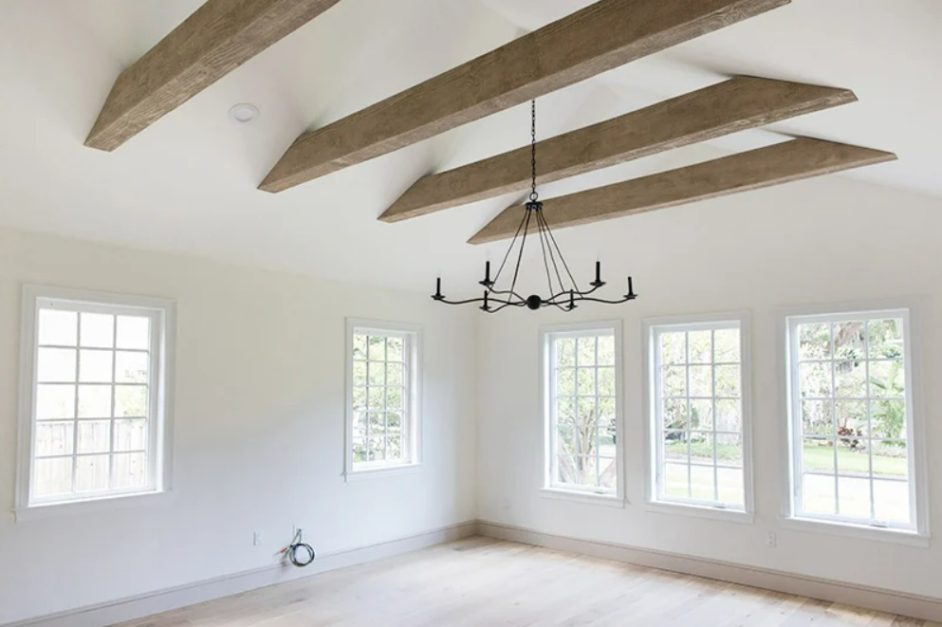
Let us take a look at the pros of using wooden beams:
- Wood adds a touch of natural beauty to your home and is practically unmatched in design aesthetics.
- Wooden beams provide structural support but the load needs to be calculated properly in order to ensure that the beam can sustain the weight.
Cons of Wooden Beams
Cons of using a wooden beam are:
- The price of wood can vary from a few hundred rupees per cubic foot to thousand of rupees per square foot, which can be out of your budget.
- Wood needs to be treated properly in order to protect it from pests, which adds to the cost.
- Wood is difficult to work with and requires a team of professionals to measure and cut the wooden log according to the required size.
Pros of Steel Beams
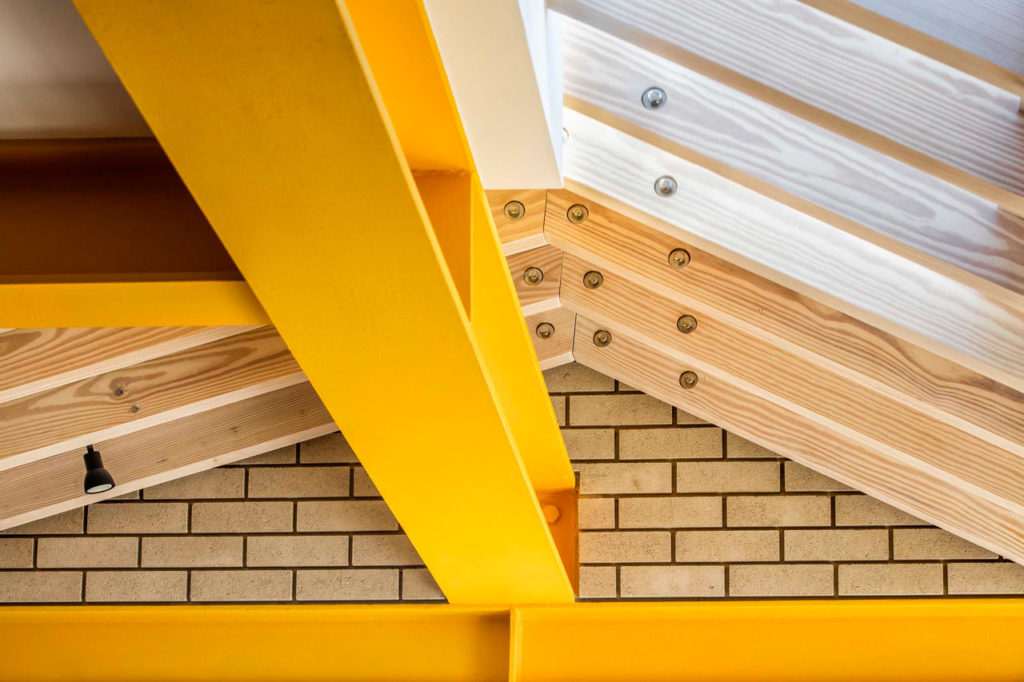
The pros of using steel beams are:
- Unlike many other construction materials, steel can be recycled and can be reused.
- Rebars have a high strength to weight ratio when compared to an equivalent mass of wood or stone without fracture.
- Steel has a higher life expectancy than wood and can withstand corrosion and rust.
Cons of Steel Beams
Cons of using steel beams are:
- Steel beams can be expensive and the coat of rust-resistant paints further adds to the cost.
- Compared to concrete beams, steel has less fire resistance, which puts the structure at risk.
- Steel beams are heavy, which makes them hard to manoeuvre, and safety is a real concern when working with steel beams.
Types of Wooden Beams
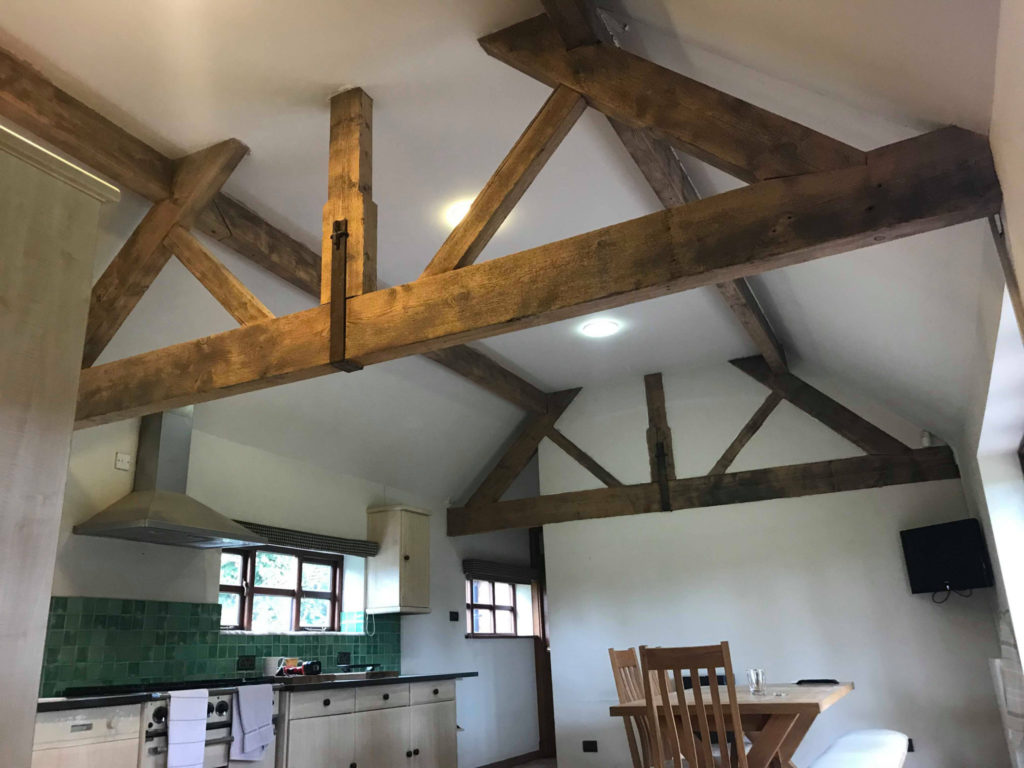
Given below the popular types of wooden beams:
Finger joined beam
These types of beams are constructed longitudinally and connected via finger joints. This type of beam is eco-friendly as the whole length of the tree is used and only a little amount of wood is wasted.
Solid wood beam
The most common type of wooden beam is a solid wood beam. As the name indicates, it is shaved out of a single log of wood and is usually square in shape. Oak and mahogany are the most common types of wood used to make solid wood beams.
LVL beam
Also known as structural composite lumber, LVL beam is constructed by joining layers of wood with glue. It may not seem so, but this type of beam provides excellent structural support. It is advised that LVL beams are used indoors.
LSL beam
This type of beam is the most expensive type of wood beam. The beam is made of veneers and flakes joined together by an adhesive. It is commonly used in residential, commercial, and industrial construction. These types of wood beams are fire and rot-resistant to some degree.
PSL beam
Engineered wood is used to make PSL wood beams. PSL wood beams, like the other two varieties, are constructed by connecting parallel wood stands using water-resistant adhesive. Because they are dense and hard, they are ideal for any type of structure.
Glued laminated timber
Glued laminated timber beams (also known as glulam) are made by glueing together wood laminates of similar strength classes with moisture-resistant adhesives. Glulam beams are more durable and superior than steel beams since they are more environmentally friendly while performing the same function.
Prefabricated open-web joists
Open-web joists are a great option for structural support and the spacing between the wood provides workers with space to lay down pipes and wiring. The beam requires less time to assemble and provides much-needed stability.
Hand-hewn beam
Hand-hewn beams, as the name implies, are a form of wood beam. They’re squared by hand, normally with a broad axe or an adze axe. When humans didn’t have access to machines, this beaming approach was prevalent. Because of its stunning appearance and longevity, people continue to utilise these beams today.
Types of Steel Beams
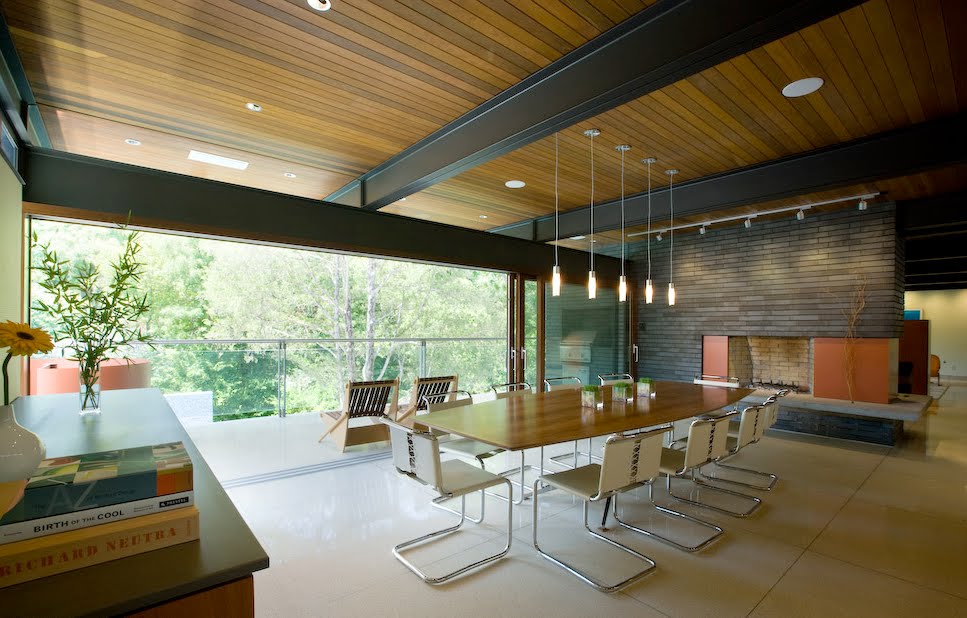
Given below are the popular types of steel beams:
I beam
I beams are also known as universal beams and are most commonly used in construction projects. It has higher stiffness in the vertical direction and can carry a great amount of load.
Plate girder
Plate girders are used in bridge construction and they are customised according to the project.
Gantry girder
A gantry is a piece of moving machinery that transports a load. Additional weight movement along the beam can also be seen.
The applied loads, moving load effects, and other factors could be factored into the gantry design. These sorts of steel beams are generally more complex to design than other varieties.
The hot-rolled parts could be used to make medium to small-scale gantries. Plate girders, on the other hand, can be used to make heavily laden gantries.
Composite beam
Composite beams are made with the combination of two or more materials and are the most efficient type of beam used. Steel can be used in conjunction with concrete to complement each other’s strengths.
To read more guides on interior design please visit Graana.com.
Read More:
